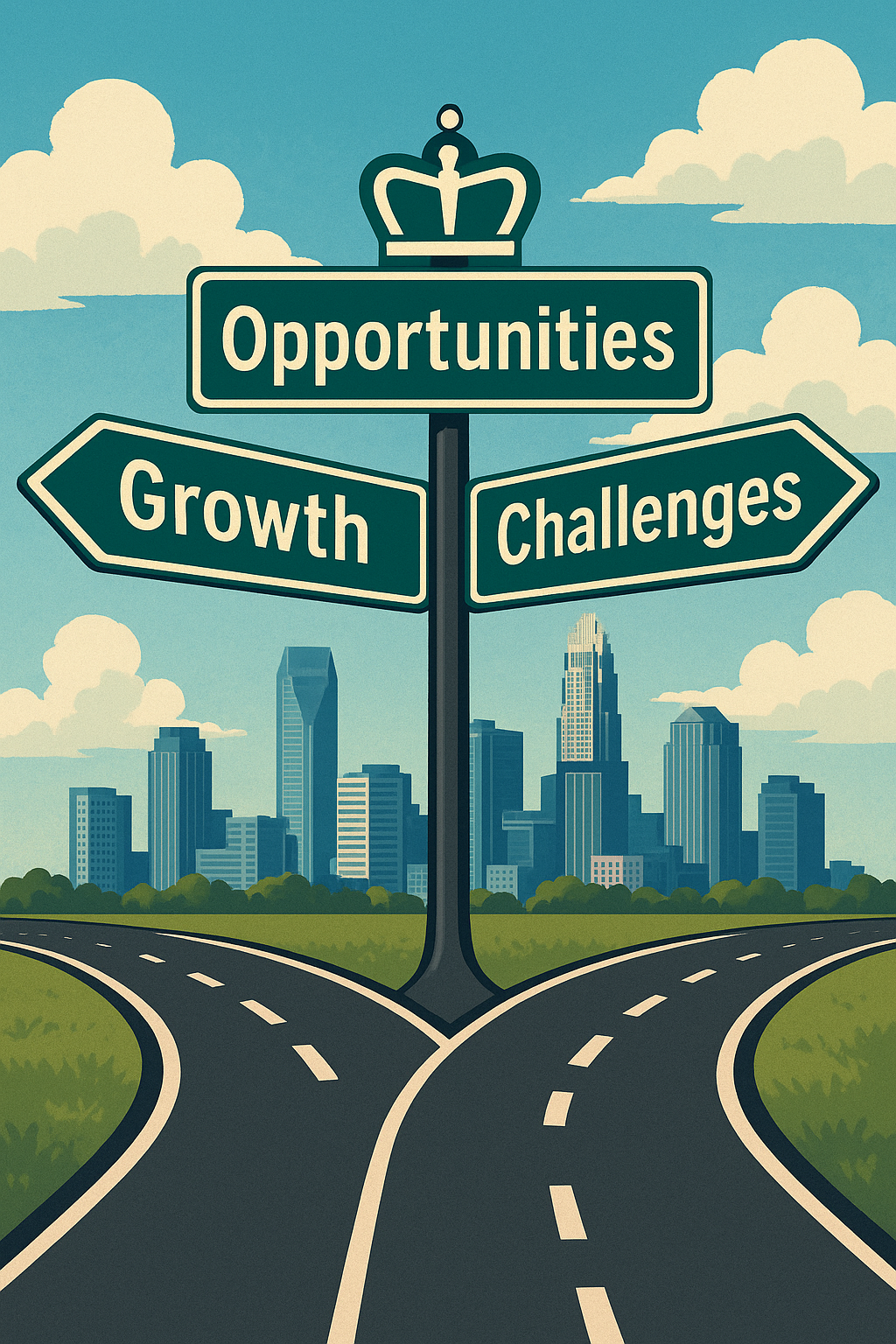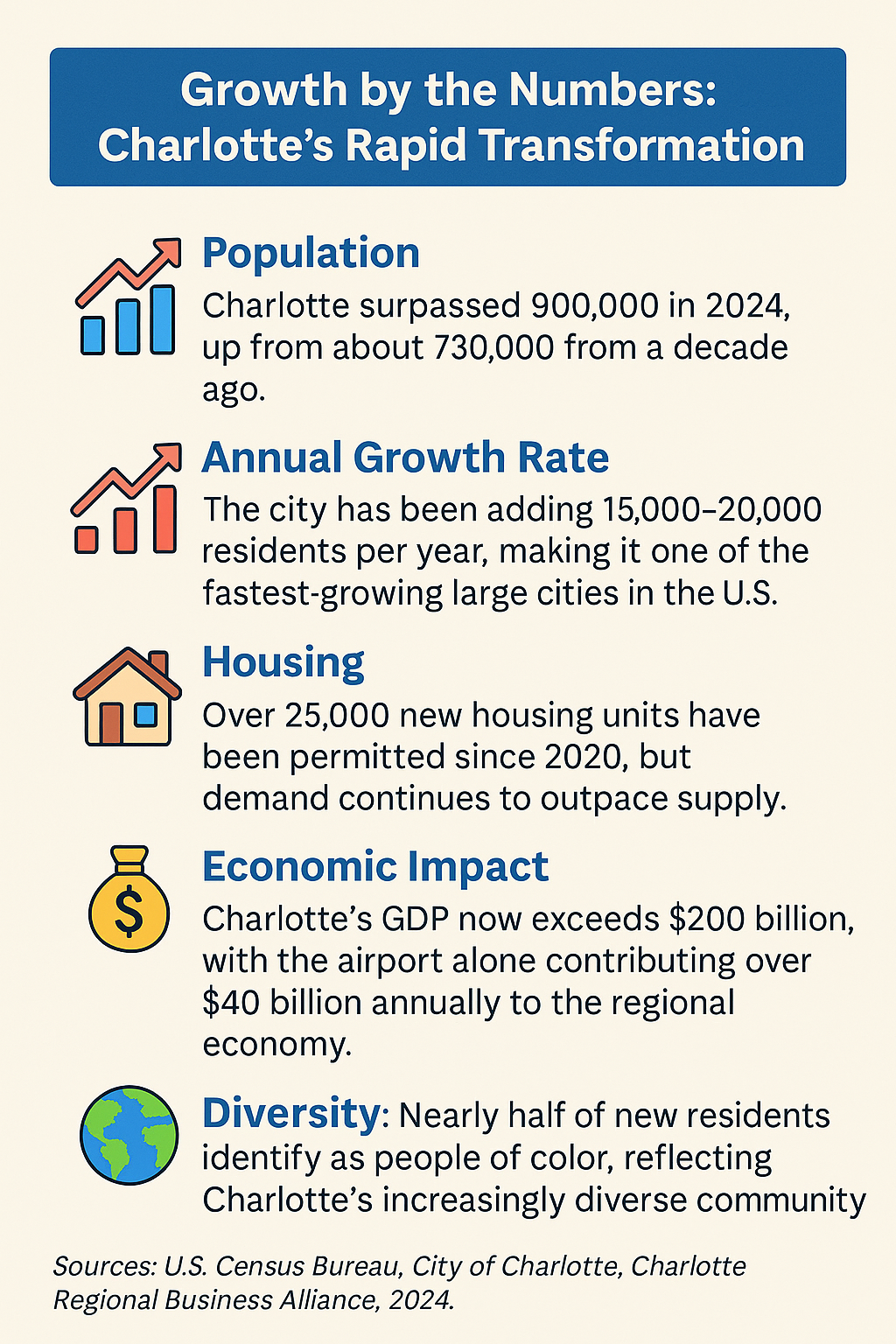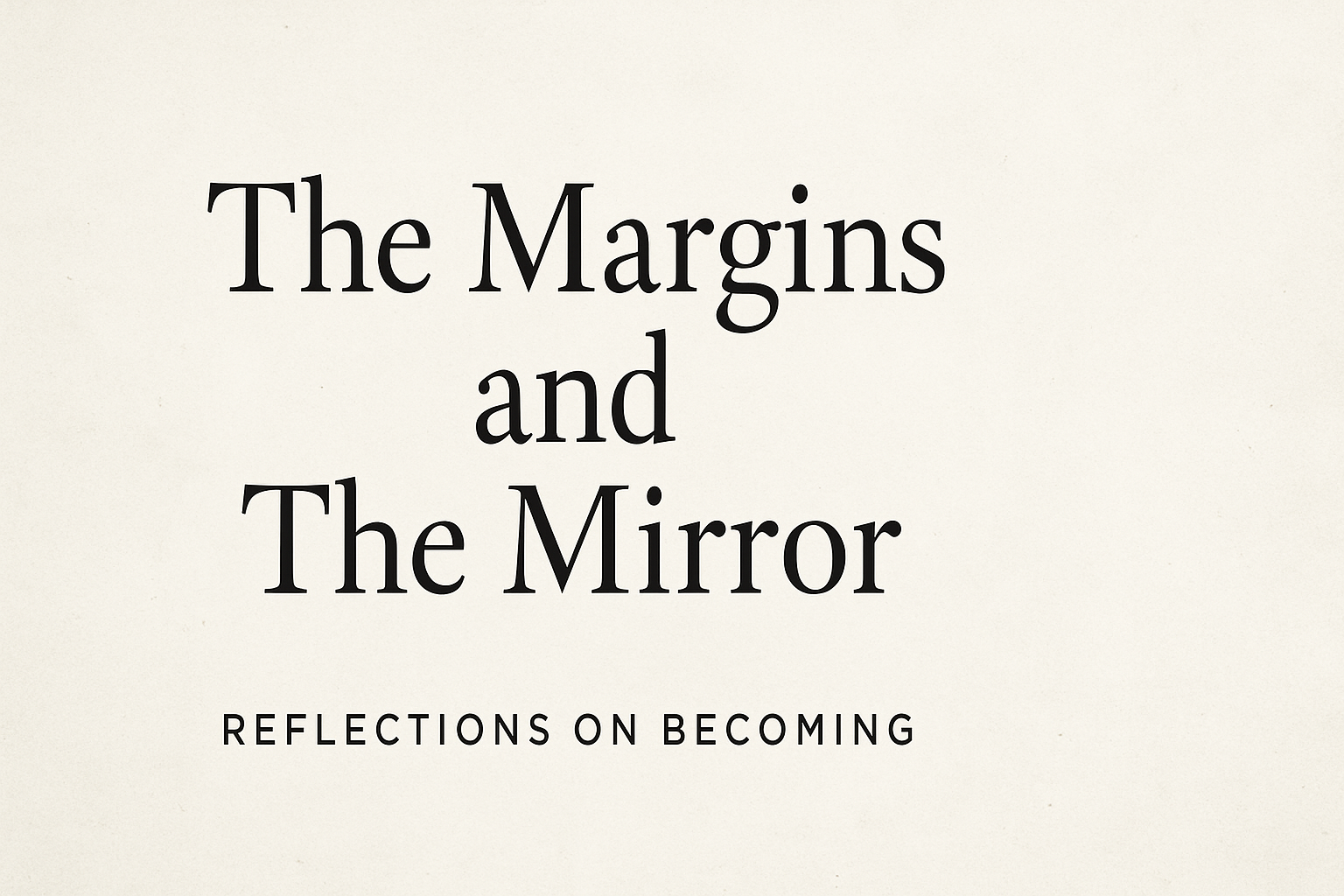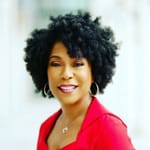Charlotte's Crossroads

Growth, Accountability, and Representation in Charlotte's District 3
Setting the Stage: A Packed Room and a Packed Agenda
On May 28, 2025, Council member Tiawana Brown hosted her “State of Our District” town hall for Charlotte’s District 3 at Good Shepherd Church. The room was packed, and the agenda—distributed to all attendees—was just as full, reflecting the complexity and urgency of the issues facing our community.
The structure of the evening was clear from the printed agenda: nearly an hour and a half devoted to presentations from city staff and outside experts, with just thirty minutes reserved at the end for community questions and closing remarks.
The lineup began with networking and a welcome, followed by safety updates, mobility and sales tax proposals, billion-dollar infrastructure projects, community area planning, and rezoning petitions. Each presenter brought slides and data, but the underlying theme was clear:
Charlotte is growing faster than its systems can handle, and residents are feeling the squeeze.
Tone Set Early: Information Over Dialogue
Captain Michael Barrett-Carter of CMPD Steele Creek Division, listed first among the presenters, delivered a detailed update on safety and recent legislative changes affecting the unhoused. At the conclusion of his presentation, he appeared ready to engage with the audience, but Councilwoman Brown interjected, announcing that all questions would be held until the end of the agenda.
This moment seemed to catch even the captain off guard and set the tone for the rest of the evening: information would be delivered to residents, but opportunities for dialogue would be strictly limited.
This approach, while perhaps intended to keep the packed schedule on track, left many residents feeling "talked at" rather than heard—a common challenge in fast-growing cities where so many issues compete for limited time.
As the meeting progressed, each topic—mobility, infrastructure, planning, rezoning—was presented in rapid succession, reflecting the city’s many competing priorities but leaving little space for genuine community engagement.
A Rare Moment for Community Voices
When the Q&A period finally arrived in the last 20 minutes, several constituent speakers began by thanking Councilwoman Brown for: “allowing us to ask questions.”
That gratitude, expressed for something so fundamental to civic life, underscored just how rare and precious the opportunity for public input felt in that setting. It was a subtle but powerful reminder of the community’s desire for a more participatory, “talk with” approach—one where resident voices are truly engaged, not just acknowledged.
The Weight of Leadership and the Challenge of Growth
Councilwoman Brown appeared composed, but the strain was visible. Understandably, given the intense scrutiny she faces after her recent federal indictment, she opened with brief remarks and then quickly handed the floor to city staff and outside experts.
For most of the meeting, she sat to the side, focused on her computer, avoiding direct engagement with constituents and media—a posture perhaps reflecting the immense pressure of the moment.
Her legal troubles, and her stated refusal to speak to the media any further following its coverage of the indictment charges, have cast a long shadow over her leadership. Yet, she remains proud of her roots as a daughter of Charlotte, often calling some residents by name and acknowledging local advocates.
It is important to recognize that, as is true for many public servants under pressure, her ability to engage substantively was hampered by both circumstance and the structure of the meeting.

The Paradox of Prosperity and Precarity
One issue that stood out—both in the presentations and in the room itself—was the growing crisis of homelessness and housing insecurity. The police captain’s update included legislative efforts to restrict where the unhoused can stand, sleep, or ask for help, with punitive measures for violations.
This approach, now familiar in many American cities, underscores a deeper paradox: in the shadow of Charlotte’s building boom, more people are sleeping in cars, on couches, or in shelters than ever before.
Airport workers —essential to the $40 billion economic engine of District 3—are among some of the “invisible homeless,” earning too little to afford rent in the city they help keep running. Some sleep in their cars or double up with family, still showing up every day to work.
This is not just a local problem; it’s a national one. But Charlotte’s vast county and rich land resources give it a unique opportunity to lead—if we can summon the collective will.
Leadership for a City at Capacity
Charlotte’s challenges are not unique, but its resources and potential are. The city’s vast land, economic strength, and diverse communities offer a chance to lead on issues that have stymied other cities—if leaders and residents alike can rise to the occasion with strength, compassion, and integrity. The complexities are daunting, but so is the opportunity.
I believe Charlotte can be a national model for inclusive growth—if we embrace our challenges with courage and compassion, and if we move forward together.
Toward the very end of the meeting, Council member Brown acknowledged the unique size and complexity of District 3, underscoring the challenges inherent in her role and the responsibility she carries for the city’s largest and most dynamic district.
Questions We Must Answer—Together
As Charlotte stands at this crossroads, these are the questions we must answer as a city and a community:
- What does real representation look like in a city undergoing such rapid change?
- How can we ensure that growth benefits all residents, not just a privileged few?
- What would it take for Charlotte to become a national model for affordable housing and inclusive prosperity?
- How can our leaders—and we as citizens—move beyond rhetoric to action, especially for those most at risk of being left behind?
Charlotte’s future will be shaped by how we answer these questions, and by the kind of leadership and participation we demand and support.
In her closing remarks, read from her phone, Councilwoman Brown shared:
“I’ve had to fight all my life. These have been the hardest six days of my life. I will continue to show up and do the work that I was elected by you to do. It’s not my seat, it’s yours. Thank you for your support, your time. Please pray for me and my family.”
Her closing remarks echo that the path forward will not be easy for any of us but, for the city, it is ours to choose—together.
Robin Emmons
District 3 resident & Founder The Citizens’ Project: Restoring Democracy Through Citizen Leadership

